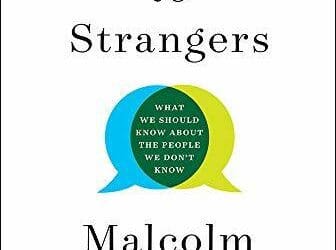
Complex Simplicity: How Psychology Suggests Atheists Are Wrong about Christianity by Lucian Gideon Conway III
My rating: 5 of 5 stars
This book was a wonderful breath of fresh air in its genre. I’ve been reading and listening to apologetics materials for a long time now and I felt like I learned something new from this book, which hasn’t happened for many years. The book was also written in a vastly different tone than other apologetics books which I think has pros and cons.
Most apologetics books will lay out the logical and scientific evidence for God and Christianity, perhaps focusing on just one small set of arguments. By contrast, this book focuses on the psychological case for Christianity. The author, Luke Conway, does this by responding to psychological critiques of Christianity and by presenting arguments that Christianity leads to human flourishing. Conway responds to such claims that Christians or Christianity is simplistic, close-minded, too authoritarian, and others.
Because the book focuses on these types of psychological arguments against Christianity, and Conway is a psychological scientist, he responds to these psychological objections in more depth than other books that cover them in passing. Additionally, Conway is a social psychologist, he has actually conducted scientific studies on the topics covered in the book so he is able to cite some of his own work, but he’s also very familiar with others who have published scientific articles on the topics.
One of the things that social psychologists study is influence tactics and Conway uses his knowledge in that area to write in a way that is more likely to change the minds of unbelievers or doubting believers. If you’re familiar with Tim Keller’s apologetics works, Conway writes in a similar tone. Conway presents arguments for Christianity and responds to objections, but he does not mock nor is he condescending toward other people or their views if they disagree.
Conway also adds a good dose of humor to the book. It’s not over-the-top, distracting humor nor is it passive-aggressive humor meant to hide ad hominem critiques. The overall effect is that it makes the book more enjoyable and gives the feeling that the author is a genuine and caring person.
I don’t say this often, but I would recommend this book to anyone. For people who are or are not Christians, it will give them a new look at arguments for Christianity, and because it’s written in a more friendly tone, it’s less likely than other apologetics books to offend unbelievers.
View all my reviews



